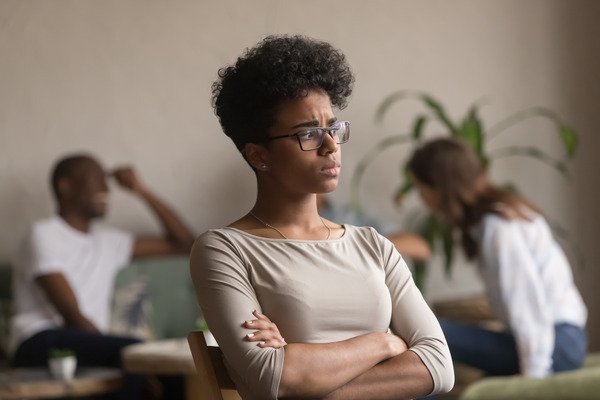“The reason why criticism affects us in such a way is, at the end of the day, simple. It is a problem of insecurity.” Discover why it is difficult to accept criticism and how I learned.

Not all of us react the same when we are criticized. In fact, according to what was published in an interesting article in El País by Ferrán Ramón, 70% will not accept criticism well and will feel hurt; another 20% will reject it by denying it and only 10% will react positively to the criticism, internalize it and consider whether they should change something about it.
The reason why criticism affects us in such a way is, after all, simple. It is a problem of insecurity Blanca Ojeda Montes, psychologist and specialist in the “Brief Strategic Therapy” Model, warns us: “the lack of self-esteem is not a problem in itself, but the effect of other problems.” Thus, a poor emotional and mental state leads us to have a poor personal image and, when one is not comfortable with oneself, one rejects, hides or denies the criticism that others make of oneself.
What strategies to follow when you do not accept criticism
Let’s say we are going through a bad personal moment, we don’t have much confidence in ourselves and we are feeling pressure in our work environment.
Carlos Rodríguez Feixoopsychologist and piscotherapist, remembers that “we must take into account that He who criticizes does not criticize the person, but rather the image he has of them ”. We must not forget that we can all make mistakes and that admitting a mistake or recognizing a better alternative when it is presented to us does not leave us in a bad place, but can even highlight our capacity for reflection and our perfectionism.
Work in the present and not go to the past
The psychologist Blanca Ojeda points to the causes of the lack of self-esteem when asked about how to correctly handle criticism: “but that does not mean going to the past, where things no longer have a solution, but rather working in the present, in the difficulties that the person is having in dealing with situations, thus, when they manage to manage their current life in an effective, efficient way… self-esteem does not take long to arrive.”
Know how to differentiate work from personal
If the steps that psychologist Ojeda discusses are followed, the moment the person knows how to manage their problems with self-confidence, they will know how to differentiate what is personal from what is work-related and will take advantage of their limits to turn them into strengths. Otherwise, when co-workers perceive that a colleague is insecure, defensive or that he accepts criticism arrogantly, the reaction is obviously negative, which only worsens our self-confidence. That’s when you think “I already knew that my colleagues can’t stand me.”
How should criticism be made when we know that we are addressing a person with a lack of self-esteem?
We should not stop criticizing an attitude or a job poorly done just because the person is going through a moment of low self-confidence. But we must always communicate criticism in a correct and respectful way. Without detours or condescension. “Said in a graphic way,” explains Blanca Ojeda, “paternalism would mean pushing the person off a cliff because that attitude would confirm their negative perception of themselves.” Furthermore, being too lenient with a person with low self-esteem would be counterproductive for them: “there is the secondary benefit -continues Ojeda-, that is, if by behaving with a limitation the person obtains benefits in dealing with his colleagues, what reasons will he have to change? “This condescension towards them condemns them to being people” incapable, insufficient and “unsafe.”
Every review is subjective
We must keep in mind that criticism will always be influenced by the beliefs, emotional states and behavioral patterns of the person making it, so it will never be completely objective. So you always have to relativize and think that there is no better way to learn than to ask (and listen to) the opinion of others.
Photo: Jesús Dávila García Psychology








